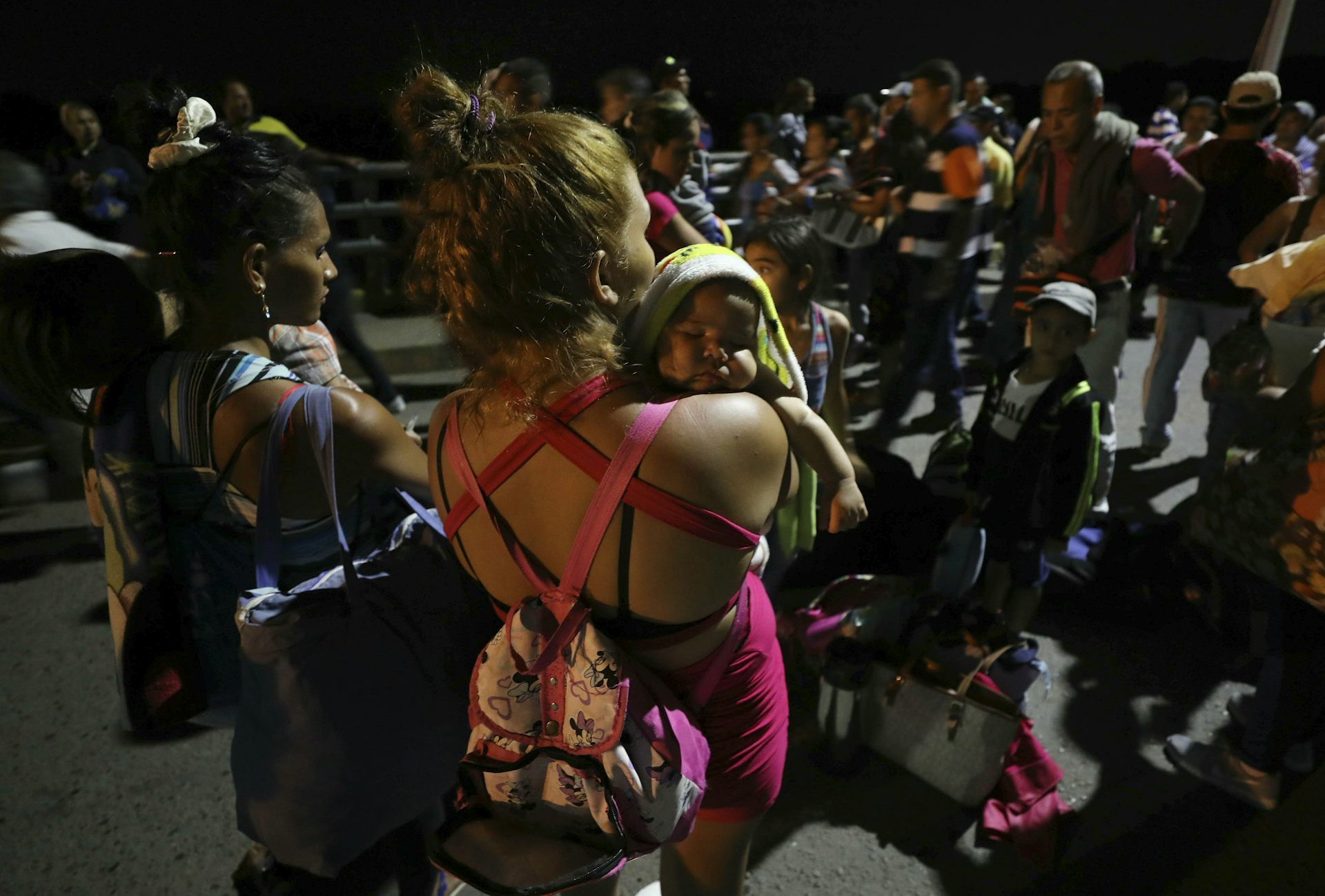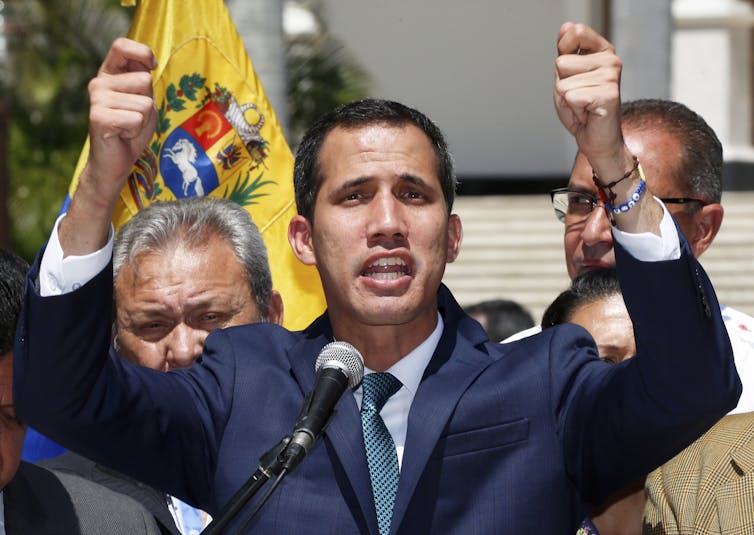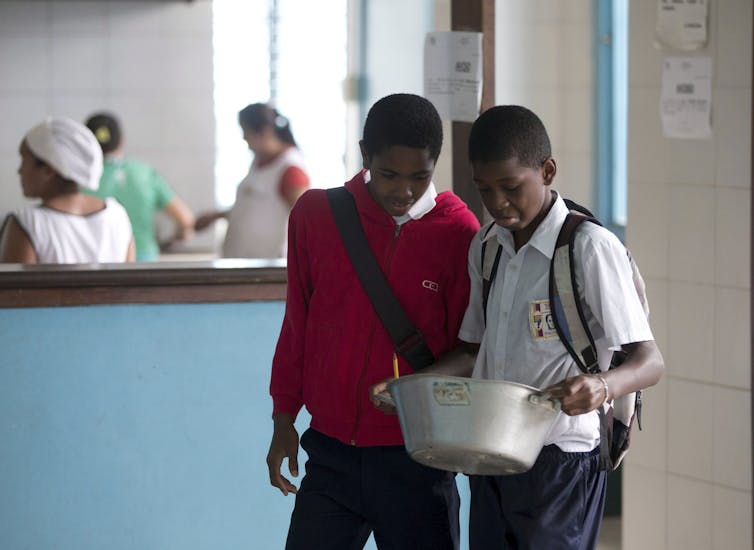
In early February, the Lima Group, a coalition of several Latin American countries and Canada, urged the Venezuelan military to sever ties with President Nicolás Maduro. The group called for the urgent delivery of humanitarian aid and for international governments to refrain from doing business with the nation “in oil, gold and other assets.”
Canadian Foreign Affairs Minister Chrystia Freeland reiterated Canada’s opposition to military intervention in Venezuela to solve the crisis, as has been suggested by U.S. President Donald Trump.
How does Venezuela find itself in one of the worst humanitarian crisis in recent history?
By November 2018, three million people had fled Venezuela, mainly because of shortages of food and medicine. This is almost 10 per cent of Venezuela’s population of 32 million.
Formerly dormant diseases such as measles, malaria and diphtheria are reoccurring. Hospitals are extremely short of personnel, medicines and the most basic equipment.
By this end of this year, the total number of refugees may reach five million.
I researched Venezuela and its leaders for my 2016 book, State Food Crimes. Venezuela’s food shortages are a consequence of state-induced hunger, not of any natural events. The Venezuelan government and its illegitimate leader, President Nicolás Maduro, are guilty of state food crimes.
Bad policy after bad
The food shortage is a predictable consequence of the policies that Venezuela’s former President, Hugo Chávez, and Maduro have imposed over the last two decades.
Chávez was elected President of Venezuela in 1999. He tried to distribute food to poor Venezuelans, and from 1999 to 2007 people’s living conditions improved. However, Chávez destroyed the market in food by imposing maximum prices on hundreds of specific items such as flour. When the official prices did not meet the costs of production and distribution, producers and distributors withdrew from the market.
Chávez also nationalized large-scale food producers, handing over farms and ranches to citizens who did not possess the expertise or resources to cultivate them. Thus very little, if anything, was produced on the expropriated territories. Property rights no longer existed.
With food shortages beginning, Chávez used revenues generated by the state-owned petroleum company, Petróleos de Venezuela (PDVSA), to import food, instead of letting PDVSA retain its earnings so that it could reinvest in infrastructure. He appointed his political allies to run PDVSA, replacing competent managers.
With infrastructure declining and with incompetent managers, Venezuela’s oil output fell. At the same time, the international price of oil dropped. So oil earnings couldn’t be used to finance food imports to replace the food no longer being produced at home.

The combination of reduced production and reduced imports meant that food shortages began as early as 2007. Food supplies fell even more in later years.
Chávez died in 2013. He was succeeded by Nicolás Maduro, who continued and intensified Chávez’ policies. Maduro penalized not only food producers but also food distributors who charged above the maximum control prices for foods.
To forestall protests against their policies, both Chávez and Maduro undermined the rule of law and the judiciary, and arrested independent trade union leaders. They manipulated the electoral process and imprisoned opposition leaders so that they would be re-elected. They both ruled by decree and used arbitrary arrest, torture and even executions to maintain themselves in power.
Maduro and Chávez controlled the media and made publishing articles criticizing the government illegal. Pictures of food shortages and empty store shelves or images of desperation are extremely difficult to circulate as social media is also controlled.
By 2017 malnutrition was confirmed in Venezuela, precipitating the political unrest now roiling the country.
The food supply is now heavily controlled by the black market. It’s also controlled by corrupt businessmen who delay the release of imported food to drive up prices. These businessmen are often members of the military, who are also Maduro’s cronies.
Some people receive subsidized food boxes, but the contents are inconsistent and insufficient. The boxes are distributed irregularly, and distributors favour Maduro’s supporters.
Violating the human right to adequate food
One way to put pressure on Maduro is via the International Criminal Court (ICC) which Venezuela joined in 2002. On Sept. 26, 2018, six countries (Argentina, Canada, Colombia, Chile, Paraguay and Peru) referred Venezuela to the ICC. Among the many human rights violations and crimes against humanity they mentioned were “violation of the rights to enjoy the highest level of health and adequate food.”

But Venezuela is guilty of more than violating the right to adequate food. Maduro’s government is knowingly and willingly starving its people. Article 7.2(b) of the Rome Statute, the law governing the ICC, considers extermination via denial of food to be a crime against humanity.
Knowing a government’s policies create famine does not mean much can be done about it. States have the sovereign right to violate their citizens’ human rights. However, states cannot commit genocide or crimes against humanity.
States’ rights are far more important to the international governing communities than the rights of starving citizens. This is why Russia and China will probably oppose any moves at the United Nations to arrest Maduro and other Venezuelan leaders for crimes against humanity.
So for the foreseeable future, Venezuelans will continue to flee in search of food. They will find it increasingly difficult to do so, as the countries they try to enter, such as Colombia, crack down on legal migration. The result is irregular migration controlled by smugglers and armed groups. Some Venezuelan women and girls are trafficked across the border as sex workers.
Meantime, like Emperor Nero fiddling while Rome burned, Maduro continues to fiddle with Venezuela’s economy. He arbitrarily imposes currency devaluations and ridiculously low wage increases.
But he won’t restore the property rights and free market that would encourage production and distribution of food.![]()
Rhoda E. Howard-Hassmann, Professor Emeritus, Department of Political Science, Wilfrid Laurier University
This article is republished from The Conversation under a Creative Commons license.


